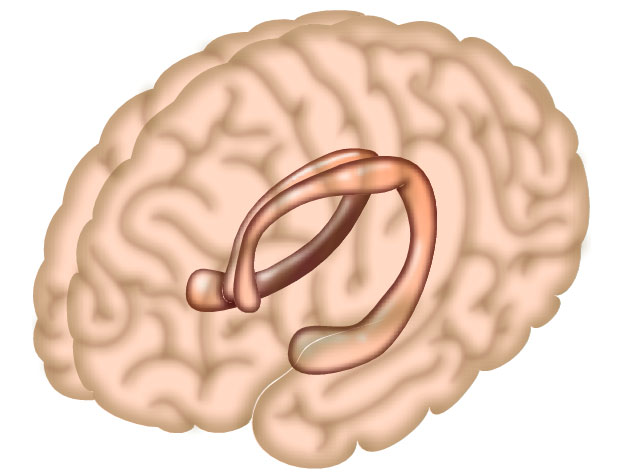What does our brain need to remember?
What happens in the hippocamp even before people try to form memories can affect whether they remember it or not.
A new study analyzing the memory of neurons from the brain of epilepsy patients found that if the transmission rate of hippocampal neurons is faster than when a patient sees a word There, the word will be encrypted and remembered later. These findings suggest that the hippocampus may have a "coding readiness" mode to increase the capacity for memorization.
The study, published in the Proceedings of the National Academy of Sciences by researcher Zhisen Urgolites, University of California San Diego, the first author, also showed that if hippocampal neurons were not been 'stimulated' stronger, new information is more likely unencrypted or poorly coded and then forgotten.

The hippocampus is the region responsible for the brain's memory formation. (Source: Salk Institute)
John Wixted, a professor of psychology at UC San Diego, and one of the lead authors of the article, said: 'The key issue is how to always put the brain in the' coding mode 'as it should. want. The "coding mode" enhances selective activity in the most important part of the brain, hippocampu, to create new memories. Previous studies have shown that people can actively prevent memory formation, be ready for their hippocampus to be ready for coding, but how can people do that, now is still unknown '.
Neurons memory from the hippocampus, amygdala, prefrontal and prefrontal cortex were collected from 34 epilepsy patients clinically monitored at Barrow Neurological Institute. The experiments were initially conducted in Peter Steinmetz's laboratory between 2007 and 2014. The data were then preserved and analyzed at Neurtex Brain Research Institute, where Steinmetz was the department director. learn.
In experiments, patients were able to see or hear a stable sentence and must indicate which words are repetitive or unfamiliar. At first, all the words are new, but then most of the words are repeated.
The researchers calculated the average frequency a neuron emits in response to words the participants saw or heard. They also calculated the rate of neuron emission just before each word. The average emitted speed in the hippocampus about a second before seeing or hearing a word for the first time is very important. This shows that the neurological activity predicts whether the participants will remember or forget the word when it is repeated later.
Stephen Goldinger, a professor of psychology at Arizona State University, said: If a person's hippocampal neurons emit instantly faster than baseline when they see or hear a word. , their brain is more likely to remember that word later.
Neuronal activity in the amygdala, pre-cingulation cortex, and prefrontal cortex do not predict task performance.
'We found that new memories are created by individual sets of neurons that work together and these neurons are combined into one memory. When a lot of neurons emit at high levels, the process of memory formation becomes better , ' Goldinger said.
- How does our brain remember the way home?
- Fish also have the ability to remember
- How do we remember memories?
- Decoding the reason humans can remember dreams
- How can humans remember dreams?
- Women remember better than men
- Similarities between the activity of human brain and bee
- 5 things you should never forget
- People can still study while sleeping
- What happened when you tried to remember ...
- Does fasting make us smarter?
- How to train your brain to remember all the information you want?
 'Fine laughs' - Scary and painful torture in ancient times
'Fine laughs' - Scary and painful torture in ancient times The sequence of numbers 142857 of the Egyptian pyramids is known as the strangest number in the world - Why?
The sequence of numbers 142857 of the Egyptian pyramids is known as the strangest number in the world - Why? History of the iron
History of the iron What is alum?
What is alum?